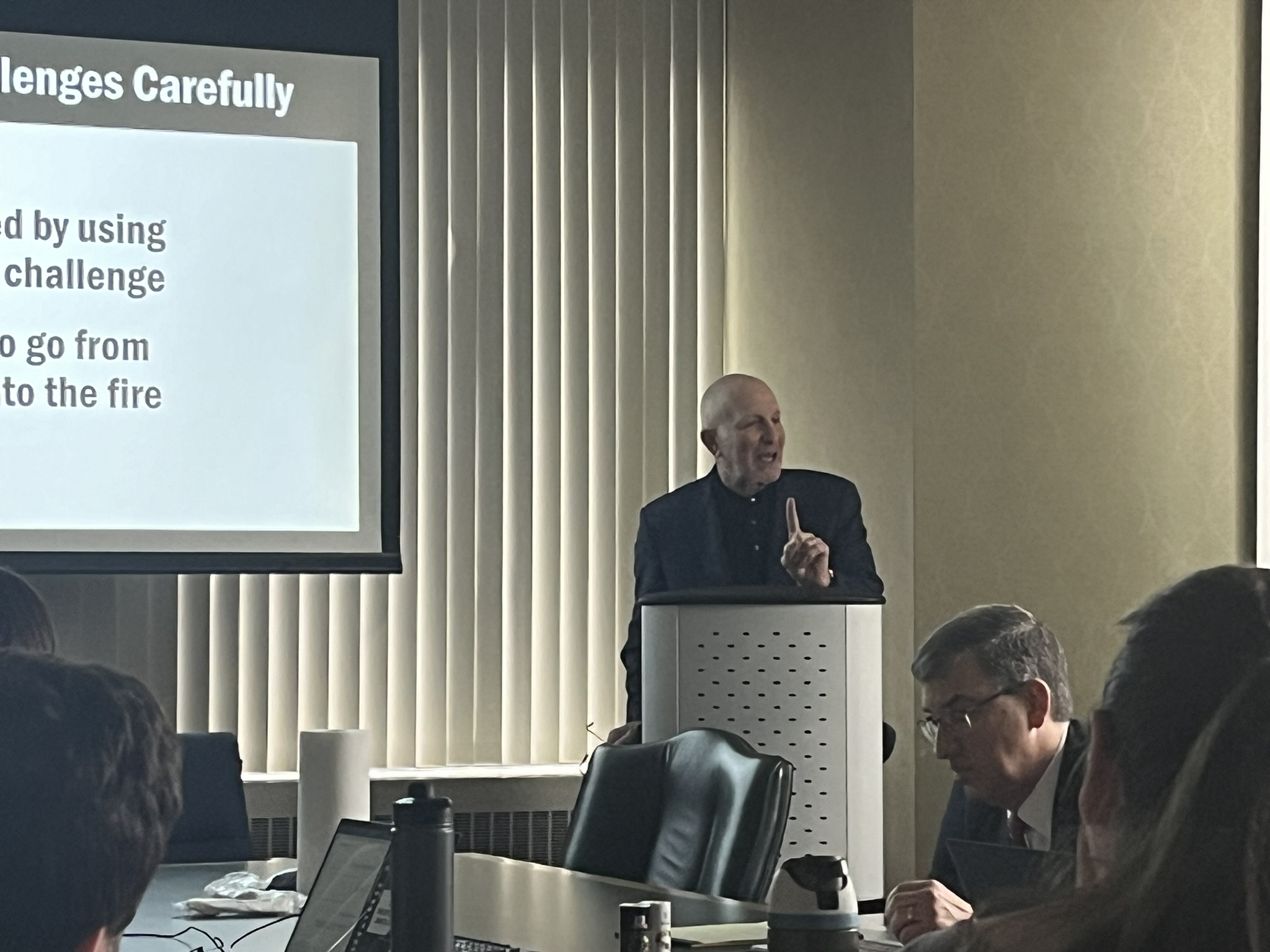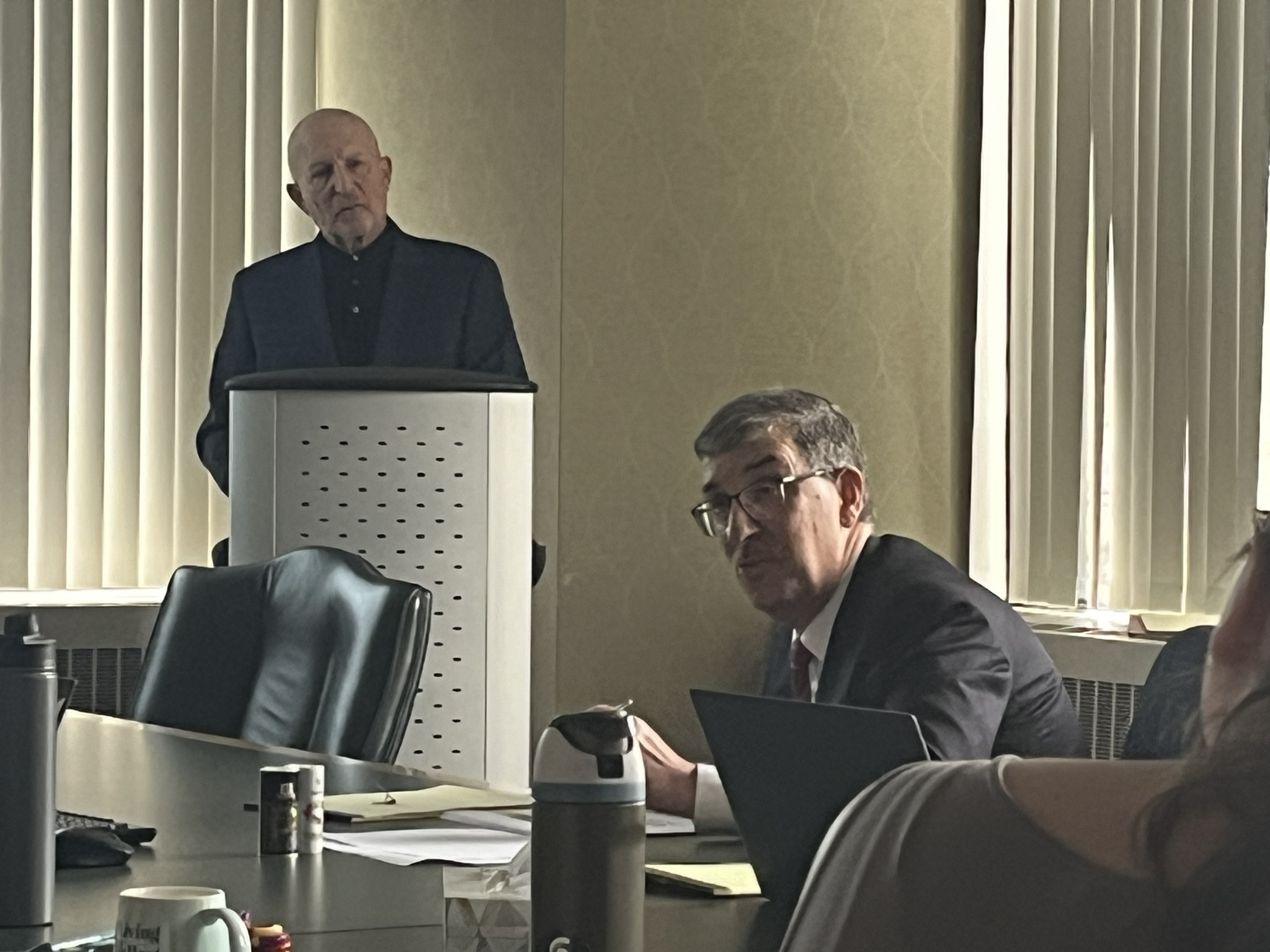

The Kalamazoo County Public Defender’s Office recently invited Levine & Levine Attorneys At Law to give a presentation on their expertise regarding jury selection and the effective use of voir dire to impanel a jury.
On Jan. 31, Managing Partner Randall Levine and Criminal Defense Attorney Anastase Markou spoke to members of The Kalamazoo Office of the Public Defender about the goals and purpose of a voir dire, including: using peremptory challenges carefully, communicating critical concepts to potential jurors, addressing areas specifically tailored to a particular case, as well as things to consider prior to jury selection and advantages of using of a consultant.
“The purpose and goals of voir dire are – number one: to educate and understand the theory of defense and legal principles; number two: communicate and build rapport; number three: excuse for cause when possible; and number four: use of peremptory challenges wisely,” said Levine.
“A voir dire looks to get rid of the people who can’t be fair. This helps to lay groundwork for challenges for cause,” Markou added. “The jury needs to hear what the case is all about, but not every case is good for every juror.”
Levine and Markou recommend probing the jury’s attitude should the defendant elect not to testify.
“Every defendant has the absolute right not to testify,” said Levine. “The court will instruct you that when you decide the case, you must not consider the fact that [he/she] did not testify. It must not affect your verdict in any way.”
Items Levine and Markou explained are always relevant when probing jurors include: demographics, previous experience with the court system or law enforcement, and attitudes toward law enforcement officers.
In addition, Levine and Markou spoke about the importance of courtroom etiquette, such as establishing a strong presence and positive perception, being respectful, and including the defendant by communicating directly to him/her during the proceeding. They noted the importance of communicating with jurors – using their name rather than juror number, engaging with them in a non-legalese conversation, and building trust with them by being yourself.
“It’s important to ask jurors open-ended questions, such as: ‘How do you feel about … what were you thinking when you heard that this case was a X case?’ or ‘how will the fact that this case involves X impact you personally?” Markou explained.
Should the public defender’s office choose to use a consult, the consultant can help identify areas of voir dire that are tailored to your case, formulate a jury questionnaire, and help with jury selection.
“We want to thank the Kalamazoo County Public Defender’s Office for inviting us to provide education about jury selection from a different perspective,” Levine said. “This was a great opportunity to learn from each other and offer the public defender’s office guidance for future cases.”

